there is one thing people are good at and that is looking at butterflies.
'wherever you are is called Here, and you must treat it as a powerful stranger.'
dear little voice,
one very interesting thing about butterflies is that people very much want to be touched by them.
Otto Marseus van Schrieck, Plants and butterflies in a forest, 1670
the average visitor to a butterfly house becomes very still when the butterfly approaches.
the visitor welcomes the butterfly with a shyness. if you are present you will watch as their heart kneels before it, and their body softens until it appears as inside of itself as a flower. the visitor’s breath, light as a shell, calls along their body, drawing itself into a subtle, waking sleep in the entirely unnecessary hope that this strange creature, for a glance, might choose, by nothing short of grace, to make a brief habitat of their fingertip.
and so the body of a butterfly rests on the visitor like a chapel, creating silence.
and the visitor loves to witness the butterfly, not because it draws them toward it, but because they must soften to allow its advance. and if they complete this task correctly, when its wings part on their finger, it is a moment slower than all the world; it is a spring tent of wind, and the visitor must be very still, and the visitor must be very quiet, and it is as though the visitor is holding in their palm the entirety of an evening sky in bird-filled summer.
visitors do not do this, most usually, with spiders, snails, beetles, or even caterpillars, whom are lucky to receive a passing gaze, and likely to receive a foot.
why is it, little voice, that the butterfly evokes this certain respect in the human imagination?
with a butterfly in the hand, the heart blooms in olives and in figs. there, the visitor sleeps beside them as if Spring themself amid the flotillas of cicada and cowslip, the palm softening against this strange creature; the visitor’s gaze alive with the sudden patience of dragonflies’.
because their finger has rest against the butterfly like this, they think:
make it stone.
because their palm contains such strength, they think:
make it light.
the presence of a butterfly invites an awareness: an awareness of the body’s clumsy heaviness, of the size and sheer gust of its breath, of all the air in all the world it occupies, and the profound responsibility that comes with, simply, taking up so much space in the world.
it is, after all, a profound responsibility to be a flower.
there is maybe one thing people are very good at and that is looking at butterflies.
they seems to occupy a very special place in the human imagination.
we have given their name to chaos by way of the so-called butterfly theory (where the wing flap of a butterfly in one part of the world may influence a tornado in the other). when words failed love, Marquez, in his love-rattled haze One Hundred Years of Solitude ,simply had a score of yellow butterflies coat the character of Mauricio in a cloud everywhere he walked. a very long time ago, human beings in Devon, England would race at the first footfall of Spring to hunt and kill the very first butterfly of the year so as to cast off bad luck.
these ideas are not very different from one another. they are all a response, little voice, to the creature that has willfully transformed itself beyond all recognition:
reverence
longing
fear
the butterfly, after all, is only the result of the caterpilalr having been in terrible danger.
the dark came for the caterpillar, because the dark will always come for the caterpillar. it never doesn’t.
it goes like this:
when the caterpillar is fully grown, she makes a button of silk, and with this button of silk, she fastens her body to a leaf. then, the caterpillar’s skin releases from her body. beneath this skin is what visitors call a chrysalis.
the caterpillar calls this death.
the butterfly calls this birth.
we call it beauty.
and, if you’re a very clever visitor, you call it fate.
a little voice can only assume that this moment when the dark comes is very confusing for the caterpillar, who has, until now, never had dark come. after all, it must be a weird and wooly time in there.
Dante, in his wing-flapping Inferno, writes of the darkness:
“In the middle of the road of my life, I awoke in a dark wood where the true way was wholly lost”
- Dante, Inferno
why is it that the caterpillar willfully wraps herself in dark? how does the caterpillar know that she is on her path and that her path is leading to flight?
she knows because her path is dark. because there is nothing in the dark to lean against. because in the dark she has no identity. because in the dark she is a nothing-thing. because in the dark she is alone.
indeed, little voice, if you were to cut a chyrysalis open (and please do not do this), you will not find a mythical half-formed shadow of grace; you will not find a butterfly’s wing half-sung in its unfurling, or an antennae budding like pearl from the earth. no: you will find a strange soup-like darkness. you will find the caterpillar decayed and destroyed.
it is no wonder, little voice, that we become wordless and humble at the sight of the butterfly: this creature of utterly improbable transformation that not only willfully went into the dark, but sewed her own.
the butterfly does not wait for change in the wings. she stitches her own dark, bravely enters it, and emerges again. and when she does emerge it is in a state so curiously more alive, and so ferociously beautiful, that visitors’ hearts sink to their knees in unparalleled humility at this little creature the size of a ten cent piece.
the fragility of a butterfly is illusion. she is bonfire. not flame.
ars poetica’s heart on her knees with the butterflies.
you are, little voice, never identical to yourself.
it is has become almost so commonplace and so utterly ordinary to say, but it is still worth being mentioned: all is creation, all is change, all is metamorphosis.
it can take a great darkness to know this.
i am sure that the Sky giggles at the sight of us visitors who, once born for the first time, dust our hands off of it and say: at least that’s over with.
the truth is, little voice, Life may birth us once— but we have a responsibility to birth ourselves again and again.
and we begin, both times, and every time, in the dark.
little voice is as much of a verb as it is a noun.
it is like this because if you are living widely and wisely enough, you become a state of perpetual creation in constant contact with the world. this is how you begin to build something immense and important, and that thing is you, and you must never doubt for a moment that this, right here, matters deeply.
some periods in the dark are so strange and so confusing that we do not even recognise that we are actually inside of a chrysalys at all.
our eyes may often be wet. sometimes we may sing a screaming song. and some days the only living we can do is in a sigh.
like the caterpillar, it would never occur to us to wonder whether the dark all around is actually the interior world of the cocoon’s dreaming; that we are actually becoming larger, and greater, and that soon we will open our arms and find that they grew tired of being arms, and instead decided to become wings.
in this way, you must treat your Life simply: as an evolution of clarity.
your little voice is invisible and immateral, but it is still a world that you reside in— and, like any world, it will take both sun and rain to reveal both the wet and gold of you. and it will always be turning. and turning. and unturning.
there is, little voice, a remarkle Poem by dark-lover David Wagoner:
it is not enough to step into the dark. you must welcome it.
if your arms never open, they will never reveal wings. you cannot sleepwalk your way through the chrysalys.
you must stand up, pay attention, and stand as still as the visitor. your Heart must get on its knees in the presence of everything you are to be.
this means being on its knees in the shadows, too. on its knees in the presence of the memory of every precious thing you have ever given away in order to make yourself safe; the fickle games you have played in order to remain untouched—
pay attention. they are surrounding you. and it is dark.
this may be an extremely intolerable dark, but it is also a dark that is creating the world in which you will do whatever you choose to do next.
you cannot choose your darknesses, little voice, but you can choose whether you take their hand.
and it is a radical thing, little voice, to step into the dark laughing; to let its shadows bathe you as blush moves through cheeks; to allow it to break against you as sugar does on teeth, or sand does against the sea: to remain wonderfully, whole-heartedly, and deeply engaged with everything and anything that happens to you.
and who are you to expect this Living business to be anything other that fiendishly, wonderfully difficult?
tap a little voice, John Donne believed, and they would ‘ring with the sound of infinity’:
“It is too little to call Man a little world; except God, man is a diminutive to nothing. Man consists of more pieces, more parts, than the world doth, nay, than the world is,”
- Johh Donne, from “Devotions Upon Emergent Occasions.”
you have discovered and you will continue to discover who it is you are and who you wish to be. and then you will laugh at having believed the discovery, and step into the dark again. and you will never, not once, on any of these occasions, be identitical to yourself.
this intimate inquiry is impossible without your dark. we all need a private place to cocoon and be alone in the presence of the ultimate infinite question: the great quickening of the heart that is the stumbling collection of words, feeling, and wonder that binds you to yourself with the caterpillar’s silk:
what is all of this?
your darkness is not flame. but it is bonfire. and it is not drizzle, but downpour. it is a feast; a miracle of multiple miles of dusk no longer withholding itself from your unfathomable readyness to self-create. come close enough and you may notice that, deep inside, a light has been left on— as if somebody, knowing you’d return, has set the table for you by the fire.
little voices are works of art in constant states of creation that mistakenly think they’re complete. the little voice you are right now is as transient and fleeting as every other little voice you’ve ever been. the only thing identical to them all is that they each had to step into the dark in order to change.
you will, after all, awaken outside of the cocoon one day and forget you were ever anywhere esle.
"I am creating myself. And walking in complete darkness in search of ourselves is what we do. It hurts. But it’s labor pain: something is being born…”
- Clarice Lispector
charge laughing, little voice. these are your dark splendours.
this is twilight and the quiet time before dawn; every prayer and second of communion uttered.
move smilingly, little voice. you: the dusky departure of everything you have known.
you: the winged arrival.
and, if you would still like to sing a song, i recommend that it is one of roses and hellos.
i say this because it is likely that this is what the next of your worlds is made of too, and so it will greet you with a kind of tender familiarity.
and let it tickle. and let it burn.
let the darkness be like a love letter from the night, which it is really to say that it promises light.
some people say yellow is beautiful, that a seat in the sun is beautiful. that the nuzlzle of dawn and ease are beautiful.
i say the dark is beautiful. i say whatever you are becoming is beautiful.
for now, if you do not know how, i recommend beginning by looking at a butterfly.
i love you,
ars poetica.
“and the day came when the risk to remain tight in a bud was more painful than the risk it took to blossom.”
- Anaïs Nin




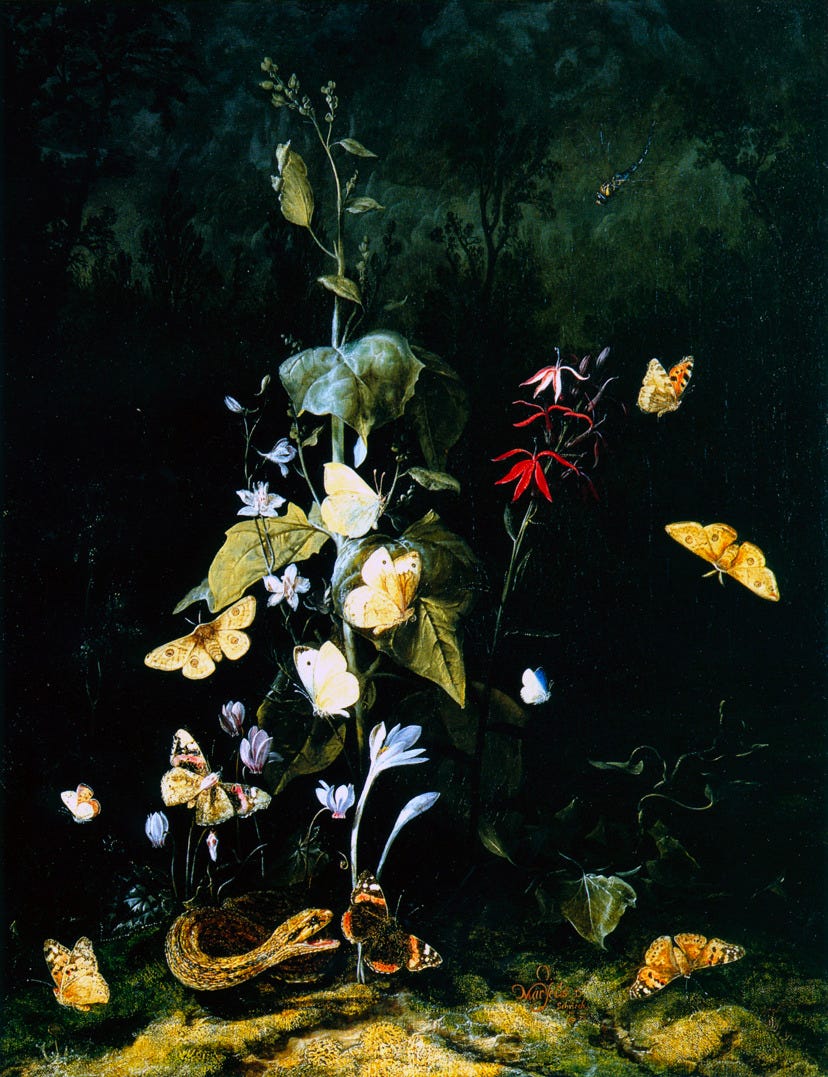
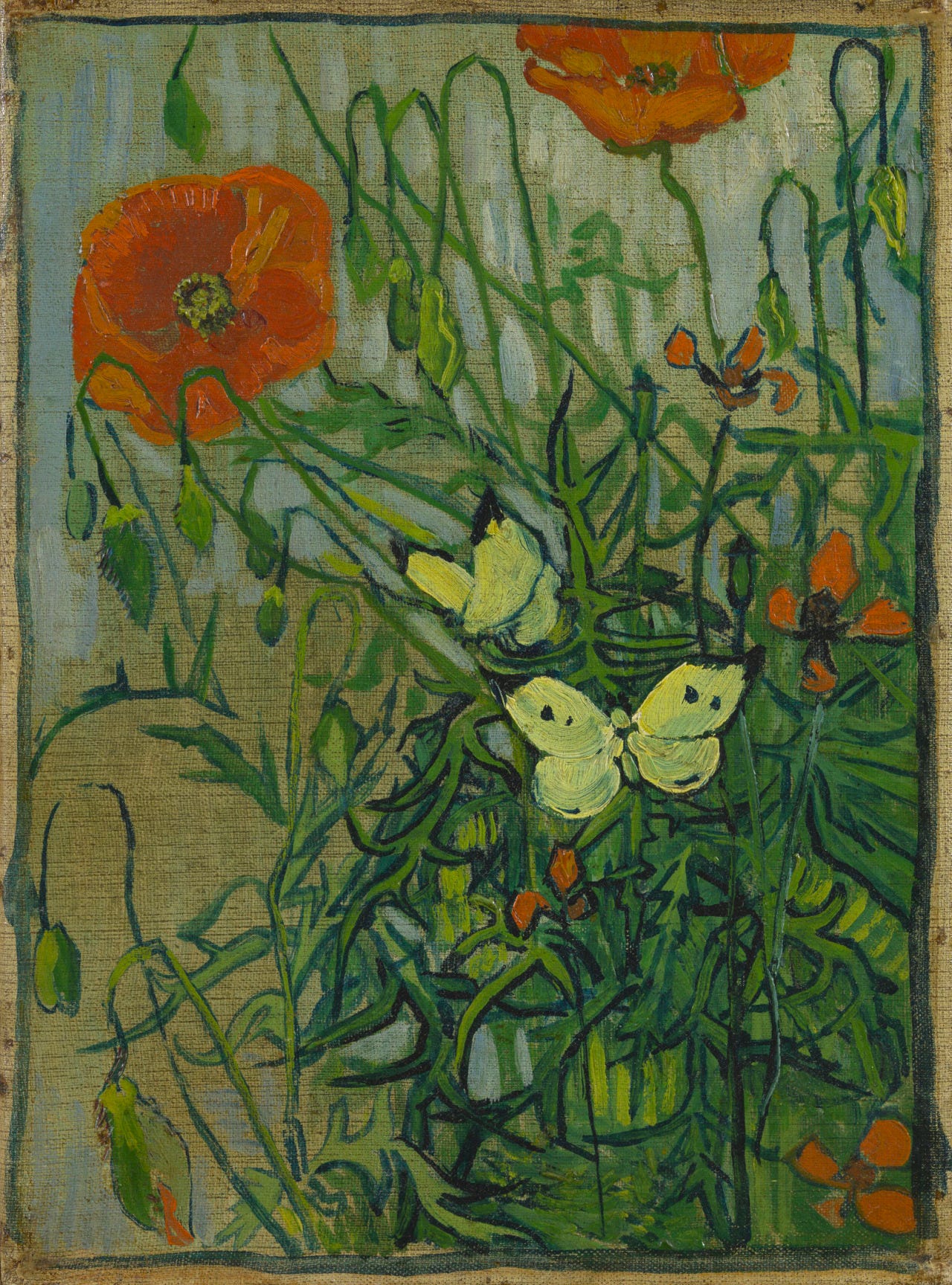
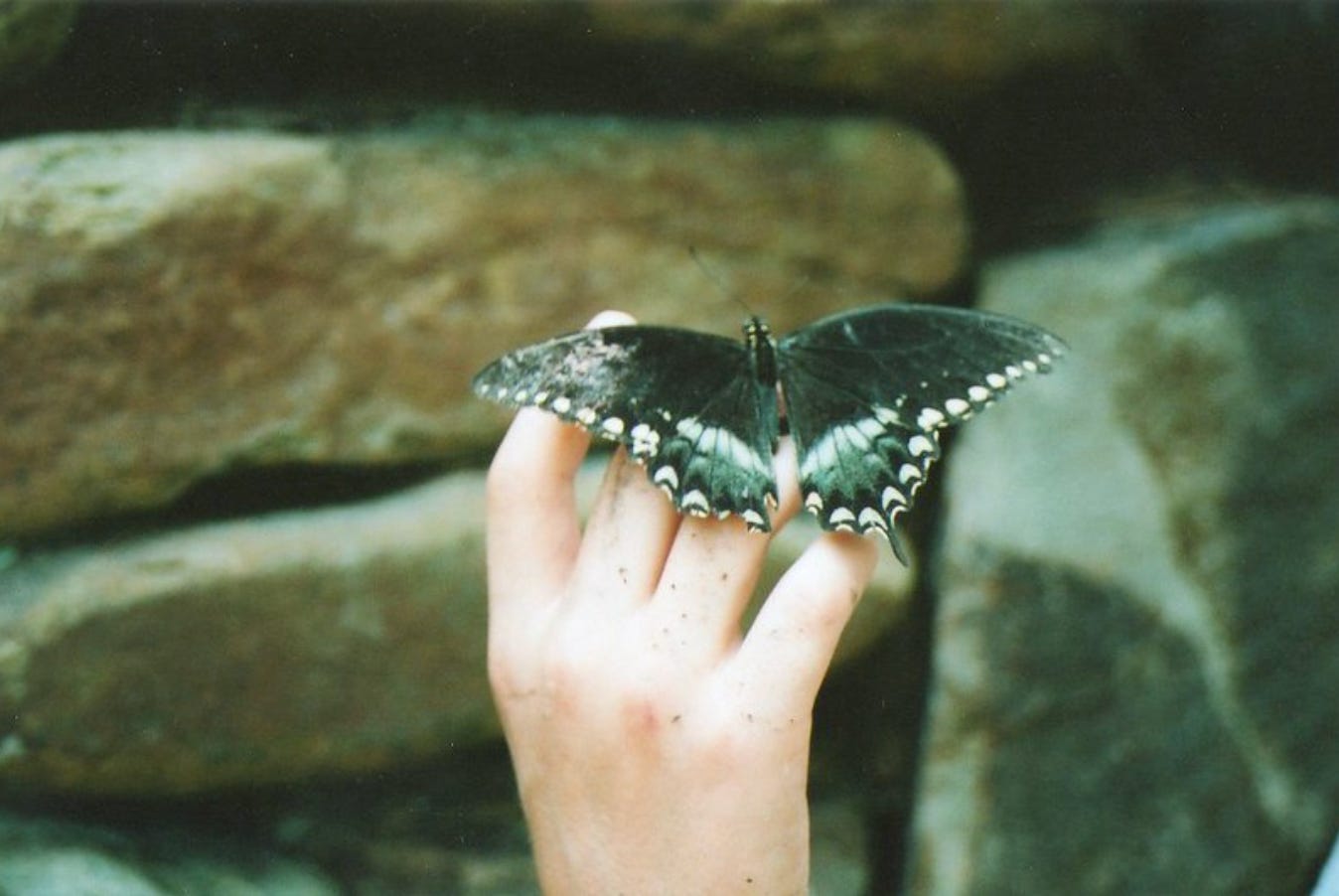
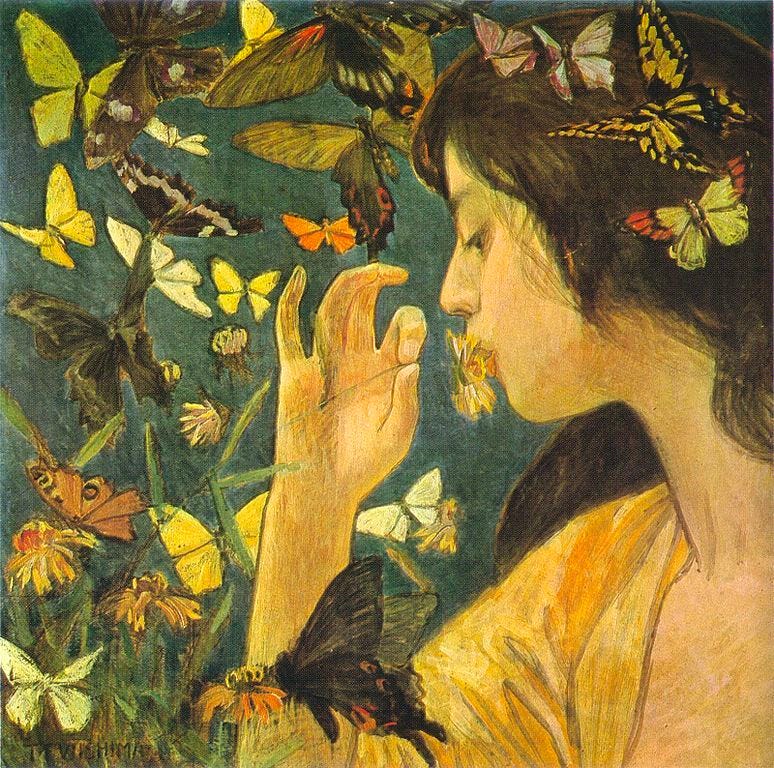


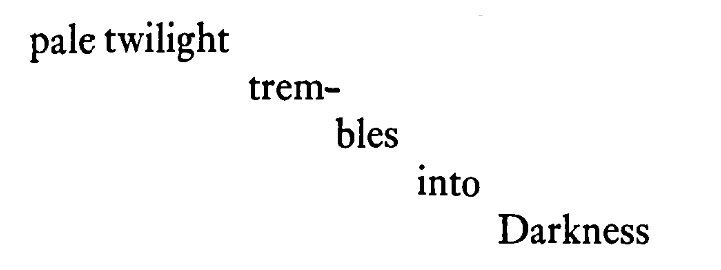

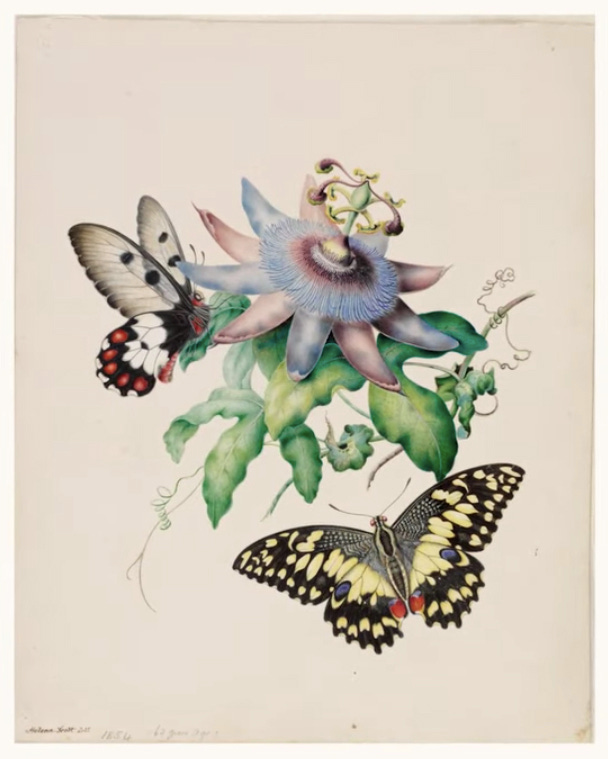
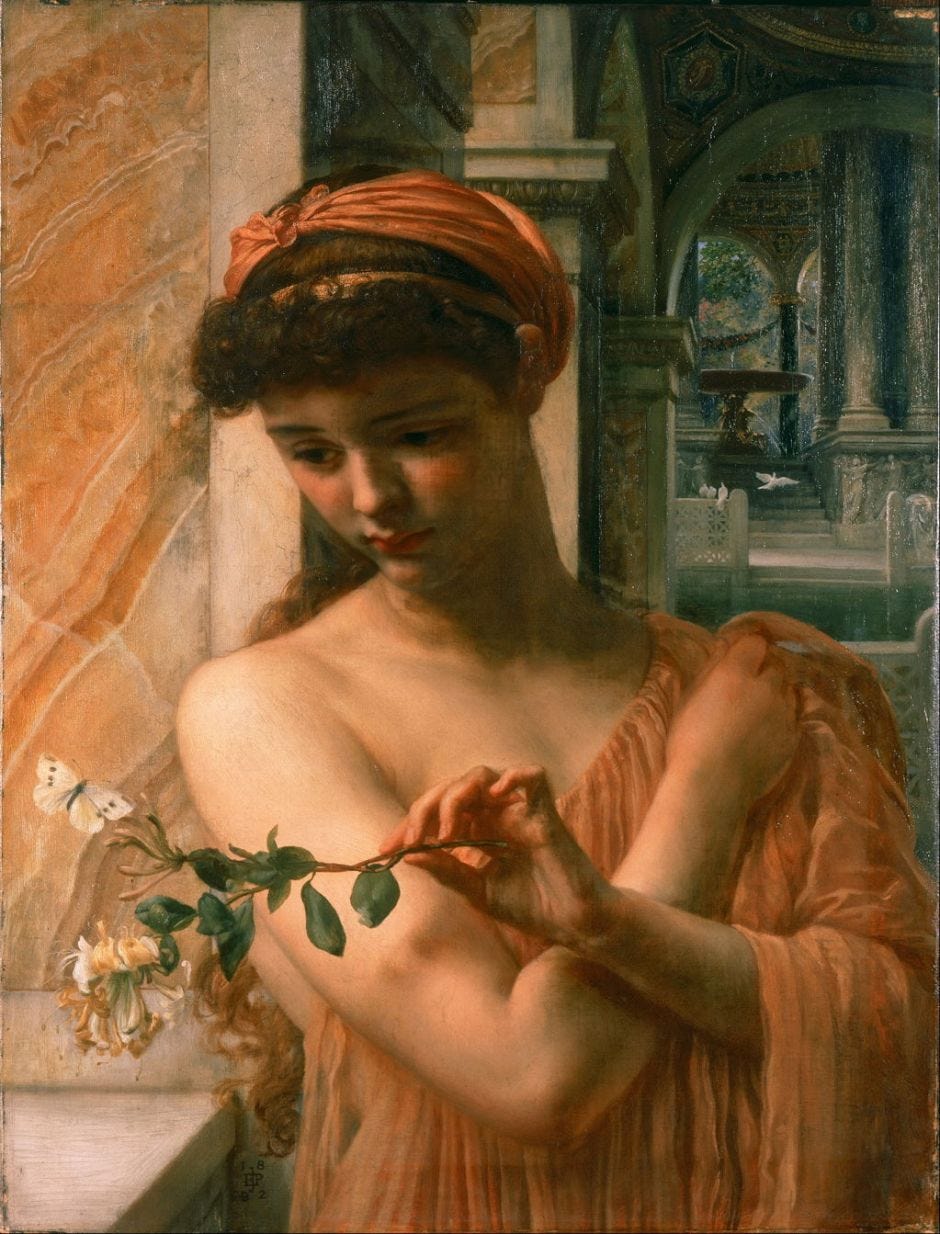
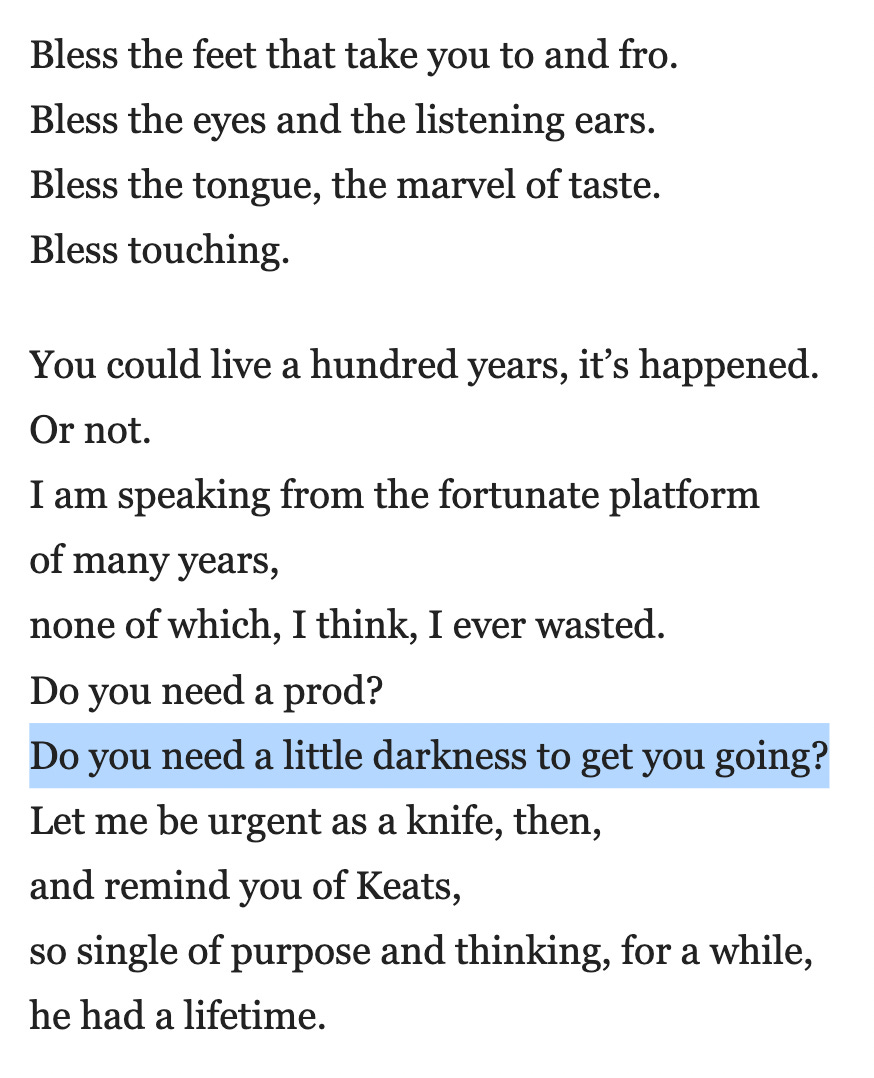
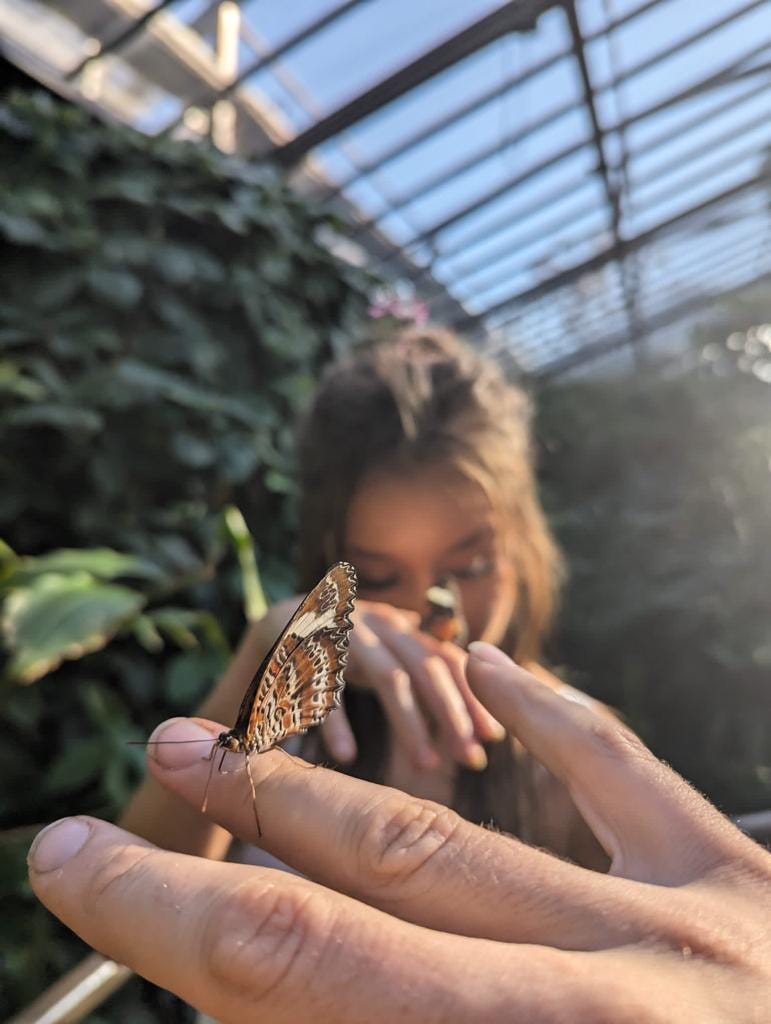
Stunningly beautiful and heartening!
So, so glad to have you back. Magical!